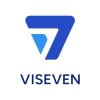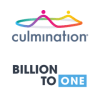Dive Brief:
- Bayer said Thursday it would cut 12,000 jobs and seek to exit its animal health business in a major restructuring aimed at focusing its resources on growing in the pharmaceutical and crop science sectors while cutting back elsewhere.
- The German conglomerate also plans to sell its Coppertone sunscreen and Dr. Scholl's foot-care product lines, as well as divest a 60% stake in the site services provider Currenta. The multi-step overhaul comes as Bayer faces rising legal pressures and sliding market performance that have pushed shares in the company below five-year lows.
- Bayer is just months from closing its $63 billion takeover of Monsanto, but the company said the latest moves were not solely a consequence of that deal. "Today's decisions were not made necessary by the recent acquisition," said Werner Baumann, chairman of Bayer's board of directors, in a Nov. 29 speech.
Dive Insight:
Welding Monsanto onto Bayer created the world's largest seed and agricultural chemicals manufacturer. That hasn't been enough to win over investors on the combined company's prospects — a task made more difficult by a stinging loss in court over the health effects of its glyphosate-containing weed killers.
The restructuring announced Thursday will put in motion more changes, including job cuts that amount to 10% of Bayer's 118,200-strong global workforce. About half of those layoffs, between 5,500 and 6,000, will affect workers in corporate and supporting functions, while another 4,100 will come in crop science as a result of the merger.
Pharma, despite being a core focus for Bayer, isn't spared either. The company will cut 900 jobs in R&D as well as around 350 positions at a facility in Germany that makes hemophilia treatments.

In hemophilia, Roche's newly approved medicine Hemlibra (emicizumab) presents a near-term competitive threat, while gene therapies on the horizon could bring even greater change.
Bayer won a recent approval of its own with Jivi (antihemophilic factor [recombinant] PEGylated-aucl), but the sector challenges are enough that Bayer decided it won't use the plant it built in Wuppertal, Germany.
Bayer's hurdles in hemophilia are a good example of the uphill road the company will face even as it invests more heavily in pharmaceutical R&D.
The company can count on strong revenue growth from its anticoagulant Xarelto (rivaroxaban), which it shares with J&J, and Eylea (aflibercept), which it sells outside of the U.S. (Regeneron sells Eylea in the U.S.)
But it's pipeline is not seen as particularly strong compared to some of its large-cap peers. To that end, Bayer noted that strengthening external innovation would be an "essential step." A 2017 deal with Loxo Oncology, for example, recently yielded a cancer drug approval in Vitrakvi (larotrectinib).
Bayer said it would invest 23 billion euros into R&D through 2022, reallocating resources it would spend on animal health into research in pharmaceuticals, crop science and consumer health.
Bayer expects efficiency and structural measures, such as job cuts, will contribute about 2.6 billion euros annually — including about 1 billion euros in savings the company hopes to realize from the Monsanto deal — from 2022 on.










